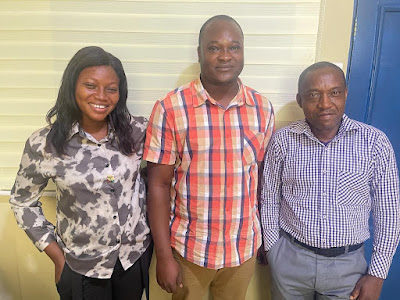By Tunde Ogunje, final year MDP student
My field placement is
with Norsaac, a local NGO in Ghana operating from Tamale in the northern region
of the country. I worked with the independent subsidiary of Norsaac called NiV
managing all the sustainable livelihood and social enterprise projects of
Norsaac. The team of four worked on four concepts/projects: the FIPA fund, the
YEESS project and strategic plan for training centre.
Though I was
involved in four projects, including facilitation in training focused on
developing women social entrepreneurs, I will be dedicating this space to the
project about upscaling an existing revolving fund. This is because I
consider it to be the flagship for all the projects I worked on. My task was to come up with how to grow a
revolving fund that started with GHS 10,000 Ghana cedis but had grown to over
100,000 Ghana cedis. I developed a concept paper that the NiV team used to
discuss the idea to create a pipeline for continuous and sustainable inflow
into the fund from different sources by developing an investment-type social
enterprise fund.
Features of the
proposed concept:
For the supply side:
- Target size of the new fund is GHS 1,500,000), but with the option to further upscale.
- Contribution to the fund should be an investment with the potential to yield return to the contributors.
- Contribution is repayable but only after a minimum of 5 years.
- Return on contributions should be less than market return but with emphasis on the social impact outcome of the fund which are financial inclusion, poverty alleviation, and gender equality.
For the demand side:
- Increase the size of business capital that can be advanced to women entrepreneurs.
- Continue with the current model of group lending.
- Introduce social collateral security (e.g. Community accountability, use of many guarantors who are also investing in the fund, etc).
- Incorporate business management training.
- Create a network of business mentors to support beneficiaries in taking good business decisions.
Surplus fund: (difference between invested fund and credit advanced)
- Identify secured, low-risk and liquid investments (Not capital market securities).
- Place surplus fund in income yielding investments returning minimum double of the highest return rate to investors.
- Prioritize the main purpose of the fund by placing large portion of surplus fund in securities that can be quickly liquidated without penalty.


No comments:
Post a Comment